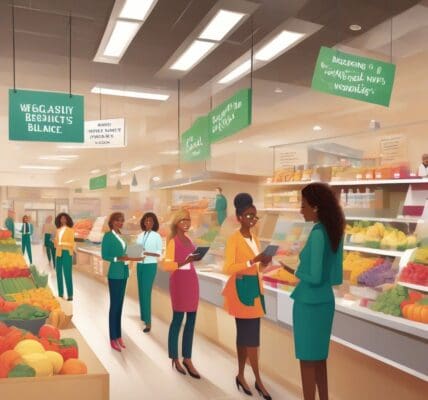In recent years, Artificial Intelligence (AI) has emerged as a game changer across various sectors, and grocery retail is no exception. The recent recorded webinar featuring prominent industry experts Kelly Pedersen from PwC, Amanda Oren, and Tom Charlton from RELEX Solutions uncovers practical strategies for integrating AI into grocery operations. By focusing on demand forecasting, reducing waste, and addressing rising labor costs, the webinar provides emerging insights that grocery retailers can leverage to enhance margins and operational efficiency.
Revolutionizing Demand Forecasting
One of the standout topics discussed was the enhancement of demand forecasting through AI. Traditional forecasting methods often rely heavily on historical sales data, which can overlook key variables such as market trends, seasonality, and consumer behavior shifts. AI-driven forecasting, on the other hand, uses machine learning algorithms to analyze vast datasets that include social media dynamics, weather patterns, and competitor pricing strategies. This allows grocery retailers to predict demand more accurately and adjust inventory levels accordingly.
For instance, a grocery store leveraging AI tools was able to increase its demand forecasting accuracy by over 30%. This precision enabled the retailer to optimize its stocking practices, ensuring that popular items were available during peak times, while minimizing overstock, leading to reduced waste levels.
Reducing Waste and Promoting Sustainability
Food waste is a persistent issue in grocery retail, estimated to account for over 30% of food produced globally. In the recorded webinar, Tom Charlton emphasized how AI technologies can significantly mitigate this problem. By harnessing real-time data analytics, grocery retailers can monitor inventory levels and product lifetimes to optimize reorder points and shelf management protocols.
For example, grocery chains using AI have found innovative ways to manage perishable goods by dynamically pricing items approaching their expiration date. This strategy not only drives sales but also contributes to sustainability goals by reducing food waste. By integrating AI into their operations, retailers not only enhance their bottom line but also play a pivotal role in addressing environmental challenges.
Addressing Rising Labor Costs
Labor costs have been on the rise for grocery retailers, making operational efficiency a critical area of focus. Amanda Oren highlighted the role of AI in streamlining labor management. Smart scheduling systems powered by AI can predict peak shopping times and adjust staffing levels accordingly, ensuring that retailers are not overstaffing during slower periods.
Moreover, AI can automate repetitive tasks, such as inventory checks and data entry, allowing employees to focus on customer service and enhancing the shopping experience. A case study presented in the webinar illustrated how a regional grocery chain implemented AI for labor scheduling and witnessed a 20% reduction in labor costs within just a few months.
Enhancing Fresh Food Operations
The grocery sector is unique in its specific challenges related to fresh food operations. Customers expect the freshest produce and meats, and any lapse in quality can lead to negative perceptions of the brand. The integration of AI in monitoring freshness levels and supply chain logistics is proving crucial.
According to Kelly Pedersen, AI tools can continuously assess the quality of perishables and signal when they should be replaced or discounted. This not only enhances customer satisfaction but also maintains profit margins. Retailers employing AI-driven solutions report improvements in their fresh food operations, leading to increased customer loyalty and repeat business.
Conclusion
The insights shared by industry leaders in this recorded webinar highlight the transformative effects of AI in grocery retail. With a focus on demand forecasting, waste reduction, labor cost management, and fresh food operations, grocery retailers can leverage AI to not only boost their operational excellence but also stay competitive in a fast-paced market.
As the grocery retail landscape continues to evolve, AI is set to remain at the forefront of these changes, enabling businesses to achieve sustainable growth and customer satisfaction. For retailers seeking to remain relevant and efficient, integrating AI into their operations may well be the key to their future success.
Discover the potential of AI in revolutionizing your grocery operations today.












